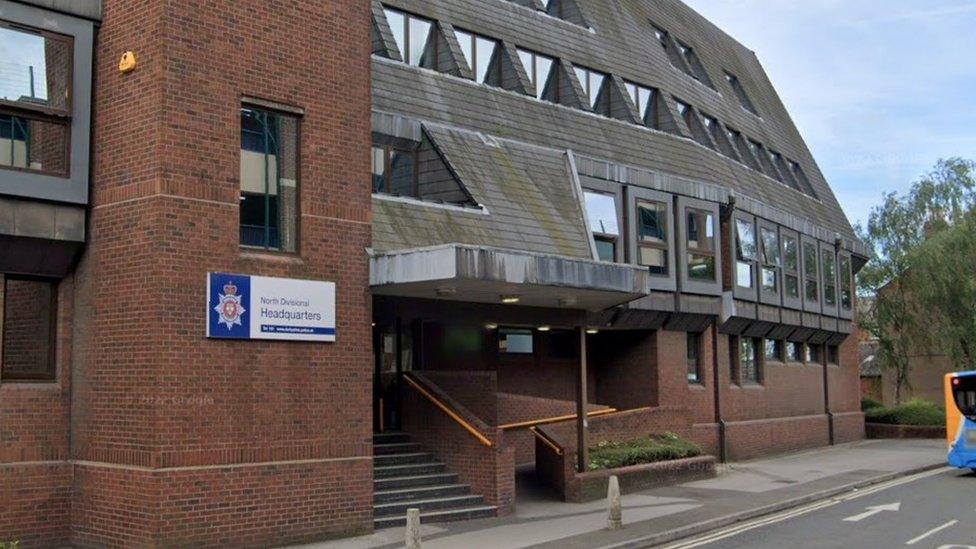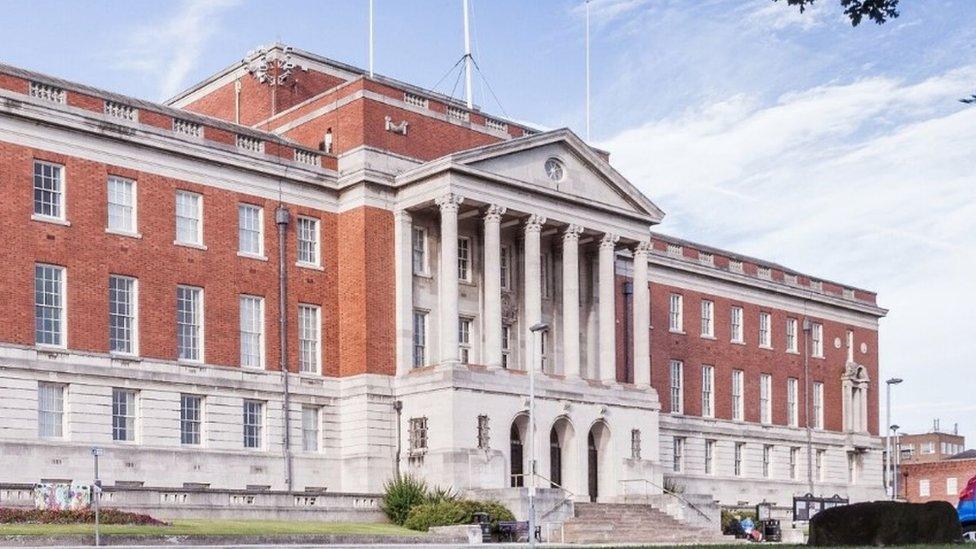Paul Jones: Officers not at fault for man's death in custody
- Published

Paul Jones, from Belper, fell ill at Chesterfield custody suite in 2015
Delays in police officers checking on a suspect who died in custody did not contribute to his death, a jury has ruled.
Paul Jones, 37, from Belper, suffered a drug-related cardiac arrest at Chesterfield custody suite in 2015.
A jury at the town's coroner's court found the delays "did not have a detrimental impact on survivability" but said the response was "inadequate".
Derbyshire Police said it had made improvements.
Derby and Derbyshire assistant coroner Susan Evans said Mr Jones was arrested on suspicion of burglary on 26 June 2015 and taken to the custody suite.
The inquest heard Mr Jones had told officers he had "taken drugs in the last 24 hours" and "felt dizzy". He was then put in a cell on "Level 2 observation".
Ms Evans told the jury those on Level 2 observation should be checked by an officer on the hour and at half-past.

The inquest was heard at the Town Hall in Chesterfield
CCTV footage at 18:52 BST showed Mr Jones "shaking vigorously" on the cell bed and he fell on to the floor.
A custody officer found Mr Jones on the cell floor at 19:10 BST and left to get help. CPR was said to have started about six minutes later after checks.
Mr Jones was taken to Chesterfield Royal Hospital where treatment continued but he could not be resuscitated.
A pathology report showed Mr Jones had taken two synthetic cannabinoids and cocaine.
Medical experts told the inquest the cardiac arrest at 18:52 BST meant survival was "less than 50 per cent" if a cell check was undertaken at 19:00 BST.
"On the balance of probabilities if he was treated at 7pm, it is unlikely he would've survived but the chances were not zero," Ms Evans said.
'Inadequate response'
Custody officers who worked there at the time said in evidence there were lengthy handovers and cells were "nearly full to capacity".
Ms Evans told the hearing the officer who was responsible for checks while Mr Jones was in custody "in hindsight should've prioritised" those on Level 2 observations.
Ch Insp Frank Burns, who is in charge of custody suites in Ripley and Derby, said "significant improvements" had been made since 2015 and the force would learn "further lessons" from Mr Jones's case.
Returning their verdict, the jury foreman said: "The jury believe the observation taking place at 19:10 as opposed to 19:00 did not have a detrimental impact on Paul Jones's survivability, considering that the medical event occurred at 18:52.
"The jury feel that the initial first aid response by officers was appropriate as help was sought immediately. However, we believe that the coordination of the response was inadequate.
"We do not feel that this contributed to Paul Jones's death based on the evidence provided."

Follow BBC East Midlands on Facebook, external, Twitter, external, or Instagram, external. Send your story ideas to eastmidsnews@bbc.co.uk, external.